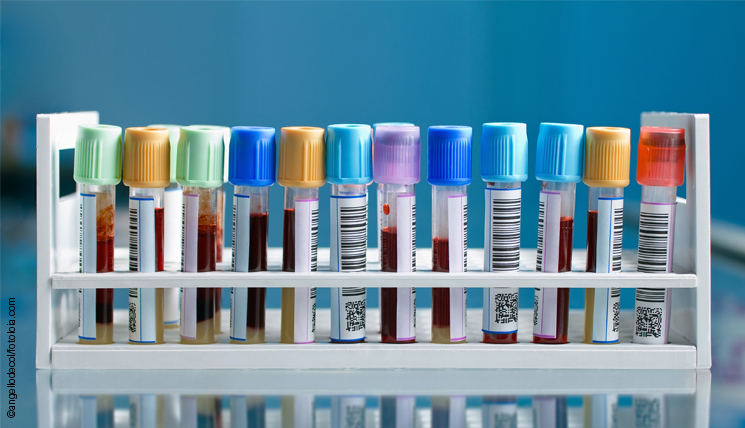Rheumatoid arthritis (RA) is a chronic inflammatory autoimmune disease which causes severe damage to the joints and leads to serious mobility impairment in the affected persons. RA cannot be cured, but can nowadays be treated, if diagnosed on time.
In contrast to rheumatoid factors (RF), antibodies against the so-called citrullinated peptides (anti-citrullinated peptide antibodies, ACPA) are considered highly specific for RA. Their detection is today an important component of RA diagnostics and the required test systems have been continuously optimised in the past years. This is also valid to the EUROIMMUN Anti-CCP ELISA which uses a mixture of different synthetically produced cyclic citrullinated peptides (CCP) as a substrate. With a very high analytical specificity (98.5%) and a sensitivity of at least 73% for RA, this assay ranks amongst the most sensitive anti-CCP assays on the market.
However, the used CCP are not the in vivo-citrullinated antigens of RA. Many investigations now focus on the identification of the true target antigens of the ACPA to find out about the actual cause and pathogenesis of the disease. One of them is the citrullinated peptide of α-enolase, CEP-1. Autoantibodies against CEP-1 might characterise a subtype of RA which is especially strongly associated with particular genetic and environmental factors (e.g. smoking) [2]. Moreover, autoimmunity against CEP-1 might present a connection between RA and periodontitis. Periodontitis is also an inflammatory disease, which affects gums and the roots of the teeth and which is in most cases caused by an infection with the bacterium Porphyromonas gingivalis. It occurs noticeably often in combination with RA and is associated with similar risk factors.
In cooperation with CEP-1 expert Prof. Venables (Kennedy Institute of Rheumatology, University of Oxford), EUROIMMUN has developed a CE-approved ELISA for the determination of anti-CEP-1 antibodies which was authorised for sale this month. First studies have shown a high specificity of >97% and a mean sensitivity of approximately 50%. This value is probably caused by the low prevalence of anti-CEP-1 antibodies in RA patients.
The determination of anti-CEP-1 antibodies can confirm a positive anti-CCP finding or aid the potential subtyping of different forms of RA. Moreover, it is possible to use the ELISA to further investigate the trigger factors of the disease. The presumption that therapy control of RA is possible by determination of the anti-CEP-1 titer is currently being investigated. Current investigations show that the concentration of anti-CEP-1 antibodies significantly decreased during a 24-months therapy whilst the status of anti-CCP antibodies remained virtually unchanged.
[1] Bizzaro N et al., 2007, Clin Chem 58(3): 1527-1533. [2] Mahdi H et al., 2009, Nat Genet 41(12): 1319-1324. [3] Kastbom A et al., 2014, Ann Rheum Dis, 0: 1-6.
